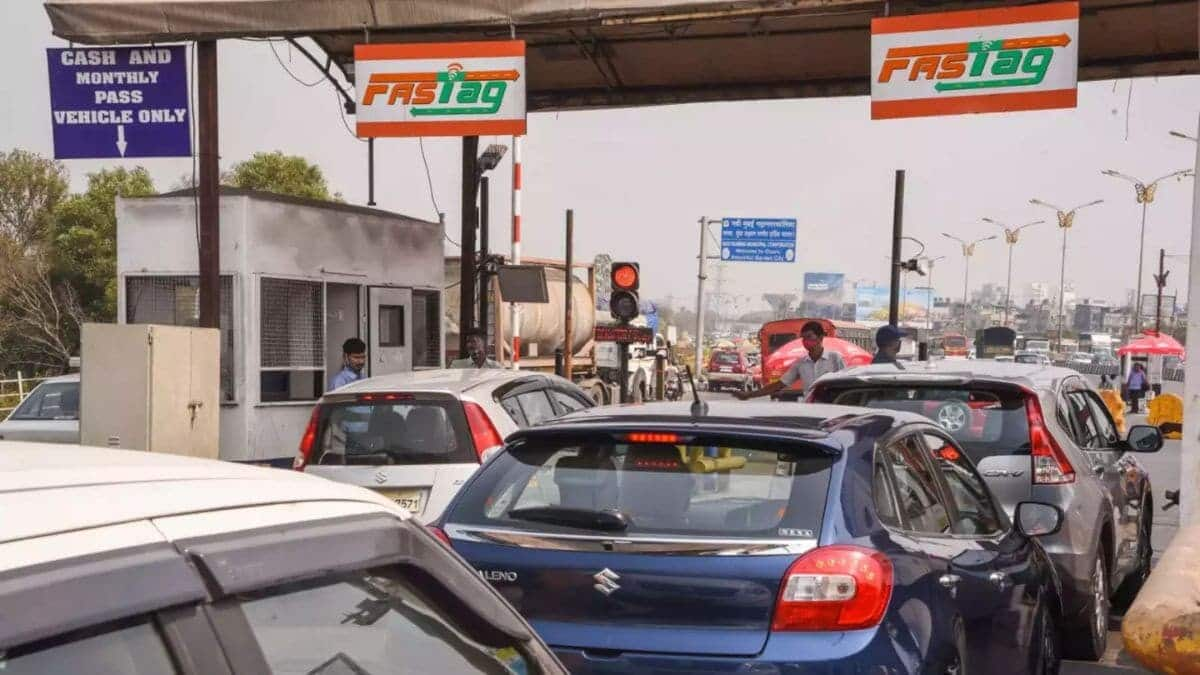
No FASTag on front windshield? Prepare to be penalized
What's the story
The National Highway Authority of India (NHAI) has issued new guidelines to enforce the proper affixation of FASTag on a vehicle's front windshield from the inside.
Vehicles that fail to comply with these guidelines will be charged double the toll fees at toll plazas nationwide.
This move is an attempt by NHAI to avoid unnecessary delays and inconvenience at toll plazas.
FASTag implementation
FASTag: A mandatory electronic toll collection system
FASTag, an electronic toll collection system, has been mandatory for paying toll fees on national highways since February 2021.
The system currently has a penetration rate of around 98%, with over 8 crore users.
As of March 2024, more than 98% of user fee payments were made at toll plazas using FASTag.
Toll fees are collected across approximately 45,000 km of national highways and expressways at around 1,000 toll plazas nationwide.
Enforcement measures
NHAI's measures to enforce proper FASTag affixation
The Ministry of Road Transport and Highways (MoRTH) released the detailed standard operating procedures (SOPs) for all toll collection agencies and concessionaires on Thursday.
According to these SOPs, violators found without a properly affixed FASTag will be charged double the toll fees and can even be blacklisted.
The NHAI stated, "This initiative of charging double user fees for non-affixation of FASTag will help to make toll operations more efficient and ensure a seamless and comfortable journey for national highway users."
Future plans
NHAI's plan to implement Global Navigation Satellite System
The NHAI plans to display information about the new rules prominently at all user fee plazas.
CCTV cameras will also be installed at fee plazas to capture footage with Vehicle Registration Number (VRN) of vehicles without an affixed FASTag.
In addition, NHAI has announced plans to implement a Global Navigation Satellite System-based Electronic Toll Collection (ETC) system within the existing FASTag framework.
GPS testing
Union government to test GPS-Based toll collections
In January, it was reported that the Union government would soon begin testing GPS-based toll collections on five to 10 highways.
This new system will require the geofencing of highways using global positioning system (GPS) or radio frequency identification (RFID) technologies.
Vehicles will need to be fitted with a device that can track their movement, and a toll will be charged based on the distance traveled at the exit point of a highway.